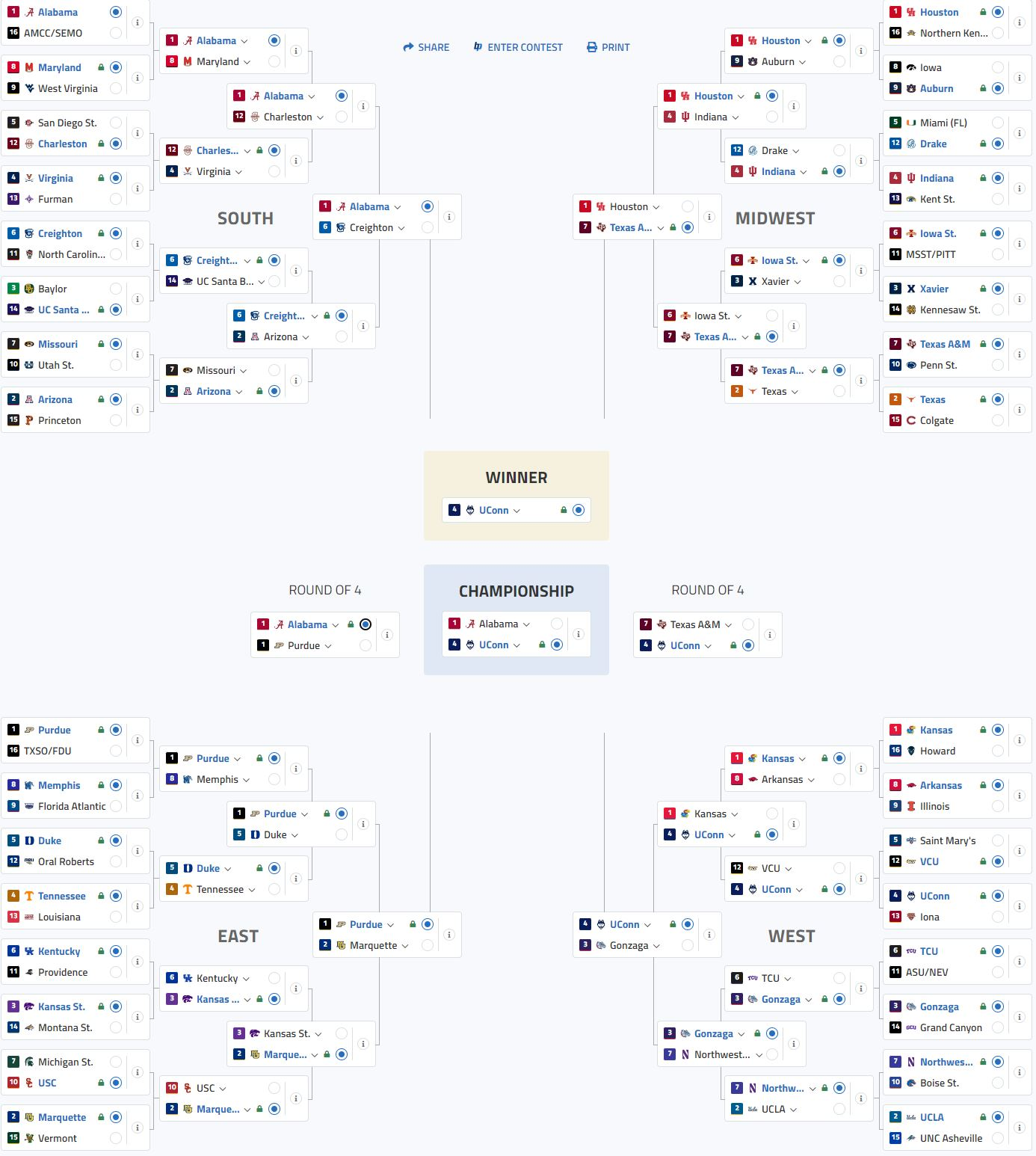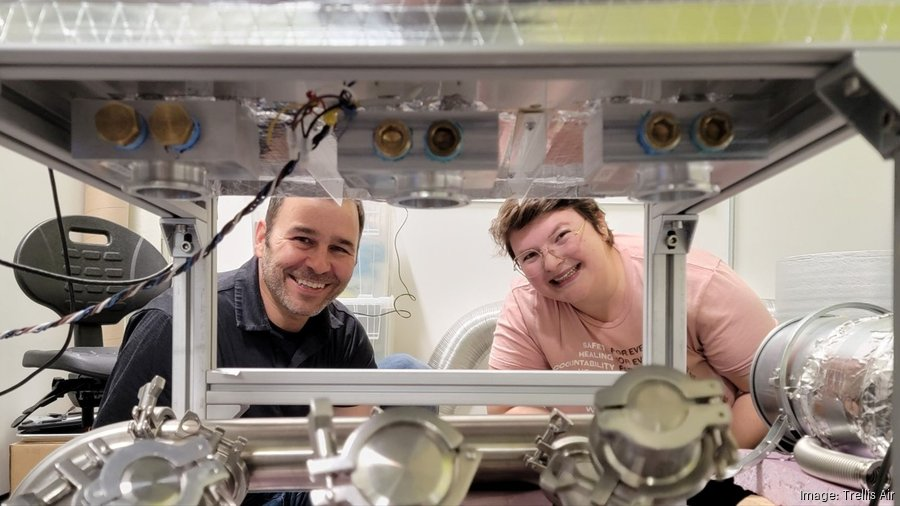When diving into NCAA bracket odds, the possibility of creating a flawless bracket becomes an intriguing puzzle for many fans. Statistically, the odds of predicting a perfect NCAA bracket are astronomically low—it’s akin to winning the Powerball multiple times. As March Madness approaches, understanding these bracket prediction statistics can enhance your basketball betting tips and strategies. Every year, thousands engage in the quest for that elusive perfect NCAA bracket, but only a handful grasp the true intricacies involved in the process. This year, analyzing upsets and top seed victories could be crucial to elevating your chances, provided you utilize smart strategies backed by March Madness statistics.
Exploring the probabilities associated with NCAA tournament predictions can be an exhilarating journey for enthusiasts and casual fans alike. The challenge of achieving a flawless tournament prediction, often referred to as achieving a perfect NCAA bracket, captivates many, especially during the exhilarating atmosphere of March Madness. With millions of brackets filled out nationwide, understanding hood winning strategies and upset picks becomes vital. Similar to assessing lottery odds, making informed choices could potentially elevate your experience and skill in the basketball betting landscape. As we delve into the nuances of these predictions, let’s uncover effective methods that might just increase your chances of joining the exclusive ranks of successful bracket creators.
Understanding the Odds of a Perfect NCAA Bracket
When it comes to the NCAA tournament, the odds of filling out a perfect bracket are extraordinarily low. The statistician Kevin Rader explains that picking a perfect NCAA bracket involves selecting the outcome of 64 individual games correctly, making the chances astronomically slim, approximately 1 in 2^63, or quintillions. This means, metaphorically speaking, that attempting to guess a perfect bracket is akin to winning the Powerball lottery twice in a row. Given the complexity and unpredictability of March Madness, the quest for the perfect bracket becomes a daunting challenge, leaving even the most ardent fans scratching their heads.
Moreover, historical data shows that no one has definitively achieved a perfect NCAA bracket, and it appears unlikely that anyone will in our lifetimes. This is due to the nature of the tournament, where top seeds typically perform well in the initial rounds, yet unpredictable upsets often occur, disrupting what might seem like a logical path to perfection. As such, avid basketball fans and bettors need to approach bracket prediction with a clear understanding of the overwhelming odds against perfection.
The Importance of Upsets in Tournament Predictions
Upsets are a crucial element in NCAA tournament predictions. For any individual hoping to win their office pool or bragging rights among friends, correctly identifying a few surprise outcomes can make all the difference. While experts recommend picking favorites most of the time, it becomes essential to identify potential upsets that can differentiate your picks from many others in a large pool. Successfully navigating these underdog stories can enhance one’s chances of standing out, as accurately predicting upsets is often just as important as forecasting favorites.
Another key strategy in making these predictions involves analyzing March Madness statistics, which can provide valuable insights into team performance. By leveraging available information, fans can make informed decisions rather than relying solely on chance. This strategic approach can include looking at factors such as team matchup histories, player injuries, and overall momentum leading into the tournament. Ultimately, while luck plays a part, a strategic analysis of likely upsets can greatly improve the odds of success.
Maximizing Your Bracket Success with Basketball Betting Tips
In order to enhance your chances of constructing a competitive NCAA bracket, implementing effective basketball betting tips is essential. One of the most important tips includes conducting thorough research on each participating team. Understanding team compositions, styles of play, and recent performance trends can provide a solid foundation for not only choosing favorites but predicting potential upsets as well. Utilize resources such as matchup statistics and expert analysis to build a more nuanced view of the tournament landscape.
It’s also beneficial to monitor betting lines and odds, as these can offer clues on public perception and team performance. The NCAA bracket odds often reflect real-time updates from betting markets, making them a valuable tool for understanding the current landscape of the tournament. Being mindful of how public opinion shapes these odds allows fans and bettors to capitalize on potential value picks, distinguishing themselves when filling out their brackets.
The Challenge of Winning Your Office Pool
Winning your office pool during the NCAA tournament poses its own set of challenges, largely driven by the fluctuating nature of team performances and the unpredictability of March Madness. The necessity of differentiating your selections from a large number of contestants adds an extra layer of complexity. Participants may default to the same set of top-seed picks, which makes it crucial to strategically place your bets on specific upsets or lesser-known teams to stand out in the crowd.
Alongside making dynamic choices, understanding the size of your pool can influence your approach to bracket predictions. In a smaller pool, selecting favorites may suffice for a win; in larger pools, the emphasis shifts towards identifying a few well-timed upsets to break away from the pack. Therefore, consistent research efforts and a willingness to take calculated risks can elevate one’s chances of claiming victory in office pools.
Analyzing Historical Trends in NCAA Tournament Outcomes
A valuable approach in predicting outcomes for the NCAA tournament involves analyzing historical trends. Statistics from previous tournaments provide insights into patterns, such as the likelihood of higher seeds advancing deep into the tournament and identifying common upsets that have historically occurred. This information helps establish a more comprehensive narrative on team performance when filling out your bracket.
Additionally, examining past March Madness statistics can reveal insightful correlations between seed rankings and winning probabilities. For example, certain seeds may have a higher or lower track record for progressing past certain rounds, which can help guide your decisions when predicting outcomes. Leveraging this historical data allows fans and bettors to make better-informed predictions and potentially outline a more competitive bracket.
Leveraging Data Science for Better Bracket Predictions
With the advent of data science and analytics, predicting the NCAA bracket outcomes has become a more data-driven endeavor. Statisticians, like Kevin Rader, emphasize the importance of utilizing data models that incorporate team performance metrics, historical trends, and other variables, such as player injuries or coaching strategies, to generate a more realistic view of possible outcomes. This advanced analytical thinking can lead to insights that may not be readily visible through traditional evaluation methods.
By employing predictive algorithms, fans can better navigate the complexities of the tournament landscape and boost their NCAA bracket odds of success. While luck remains a factor, using a data-oriented approach gives fans and participants an edge over intuition-based predictions—shifting the odds in their favor when the tournament begins.
The Psychological Aspect of Bracket Predictions
The psychological aspect of predicting NCAA brackets cannot be understated. Many fans engage in the bracket-filling process with a mix of emotion and strategy, often swayed by personal preferences, team loyalties, or infamous underdog stories. This can cloud judgment and lead to irrational selections, highlighting the need for a more analytical approach when crafting your picks.
Moreover, the pressure of knowing that thousands of others are competing with similar enthusiasm can influence predictions and cause anxiety over choices. Understanding this psychological dynamic empowers fans to combine their passion for basketball with logical betting strategies, ensuring a more balanced approach when tackling the NCAA tournament.
Navigating the Impact of Team Matchups on Predictions
When constructing your NCAA bracket, it’s crucial to pay attention to individual team matchups. Certain teams perform remarkably well against specific styles of play or have a history of winning against particular opponents. Delving into past matchups can inform predictions and shift the favored narrative when odds are released. Understanding these nuances can greatly enhance your likelihood of making impactful picks amidst the chaos of the tournament.
Furthermore, factors such as defensive and offensive capabilities can play a significant role in determining how teams might fare against each other. By analyzing how teams fared in previous matchups and their current season performance, you can create a more informed and strategically crafted bracket. Recognizing these elements enables you to capitalize on potential mismatches that may not be adequately reflected in initial odds.
Tools and Resources for Enhancing Your Bracket Strategy
In today’s digital landscape, a variety of tools and resources are available to assist fans in enhancing their NCAA bracket strategy. Websites, apps, and dedicated algorithms provide detailed analyses and predictions based on current data, engaging an audience that would normally rely solely on instinct. These resources offer predictive insights, statistics, and real-time updates on teams, which can all be game-changers when filling out your bracket.
Moreover, many of these platforms allow users to customize their approach, offering personalized brackets based on user preferences and specific criteria that matter to them. Utilizing these advanced tools enables fans to delve deeper into the analysis of bracket predictions, all while improving personalization and strategy on such an unpredictable stage as March Madness.
Frequently Asked Questions
What are the odds of achieving a perfect NCAA bracket during March Madness?
The odds of creating a perfect NCAA bracket are astronomically low, estimated at 1 in 2^{63}, which translates to quintillions. Given the unpredictable nature of the tournament, it’s highly unlikely anyone will achieve a perfect bracket in their lifetime.
How can I improve my bracket prediction odds for NCAA March Madness?
Enhancing your bracket prediction odds involves researching team statistics, analyzing March Madness trends, and relying on expert basketball betting tips. Pay close attention to matchups, player performance, and historical data to make informed decisions.
Are there any specific March Madness statistics I should consider for bracket predictions?
Yes, key March Madness statistics include team seed performance, historical upset patterns, and player statistics such as points per game and rebounds. These metrics can greatly influence your NCAA bracket odds.
What are the lottery odds of correctly picking the NCAA bracket winners?
The lottery odds of correctly predicting every game in the NCAA bracket is comparably difficult to winning the Powerball twice in a row. With many upsets each year, even accuracy in top seed predictions can be a challenge.
What basketball betting tips can help in maximizing my NCAA bracket odds?
Utilizing basketball betting tips such as understanding team dynamics, recent performance data, and expert analyses can enhance your NCAA bracket odds. Additionally, don’t forget to factor in potential upsets when making your predictions.
| Key Point | Details |
|---|---|
| Odds of a Perfect Bracket | Astronomical odds of 1 in 2^63 or quintillions. |
| Historical Context | No one has ever officially completed a perfect NCAA bracket. |
| Similarity to Lottery | Compares to winning the Powerball twice in a row. |
| Common Dynamics in Tournaments | Top seeds rarely lose, particularly in the first round. |
| Predicting Outcomes | While many games may seem like coin flips, stick with favorites in significant discrepancies. |
| Office Pools Strategy | To win, pick favorites but also include strategic upsets to differentiate. |
Summary
NCAA bracket odds are notoriously low, making it immensely difficult to pick a perfect bracket. As demonstrated by expert analysis, the statistical reality of achieving a flawless selection is a tad over one in quintillions, underscoring why such feats remain unrecorded in history. In essence, successfully navigating NCAA bracket odds requires not only picking favorites but also strategically including upset predictions to stand out in competitive pools.



